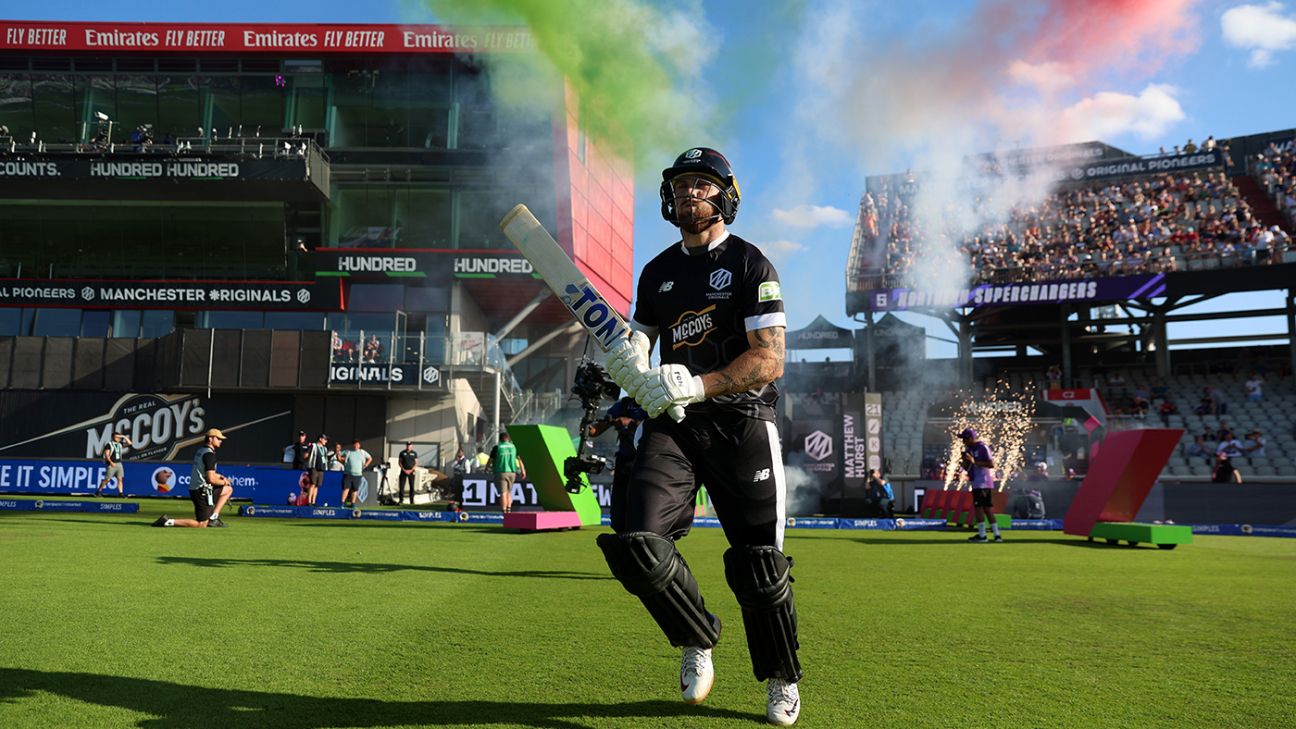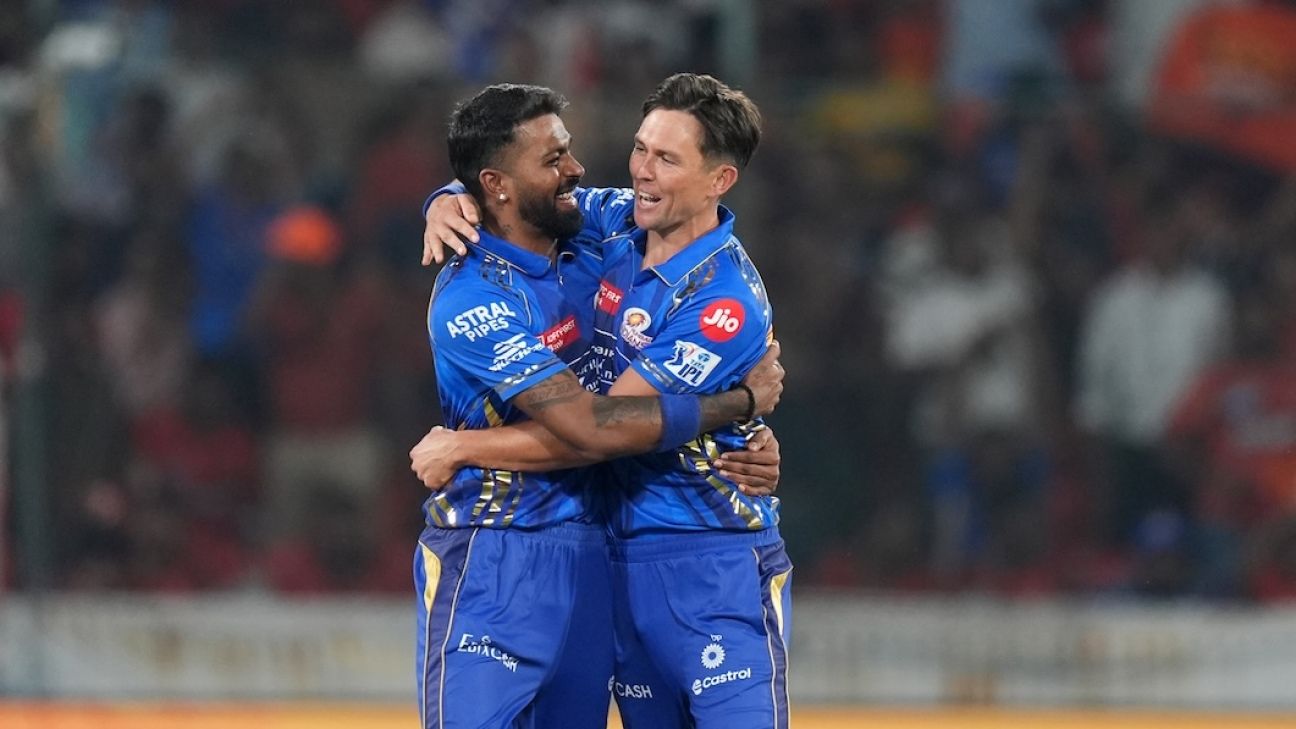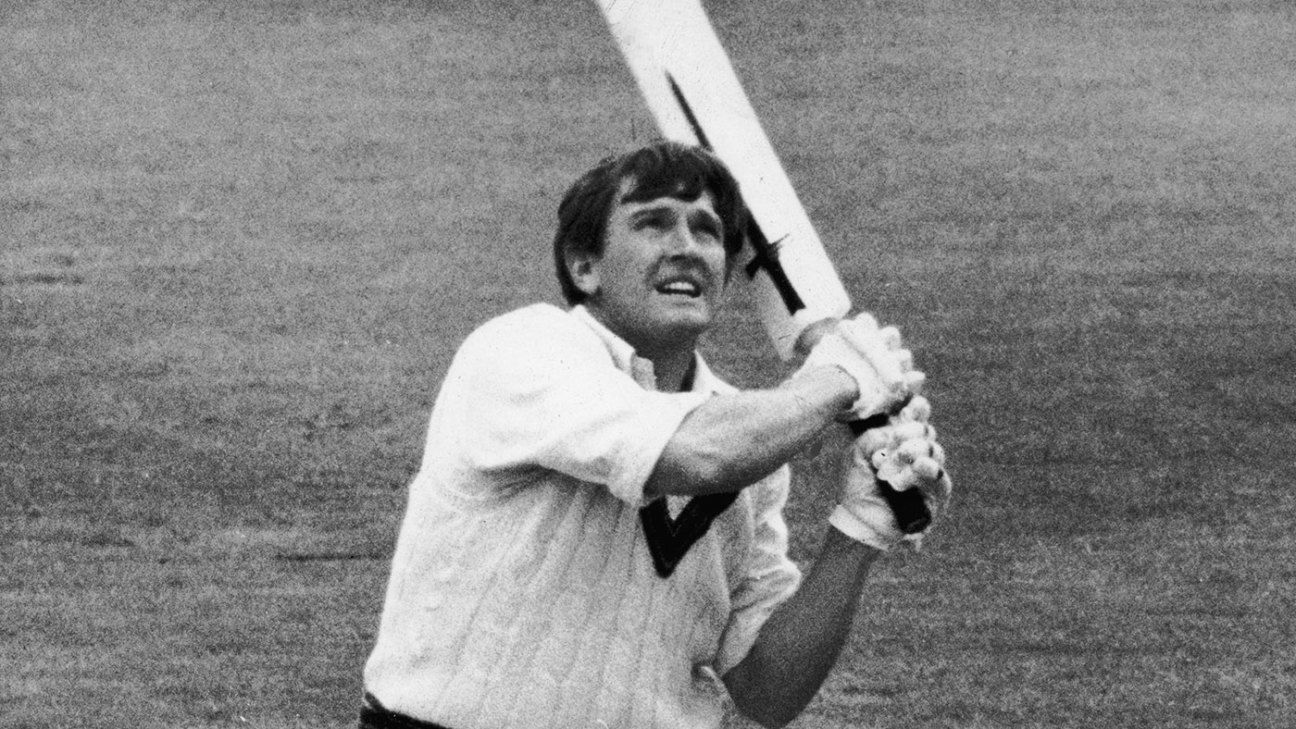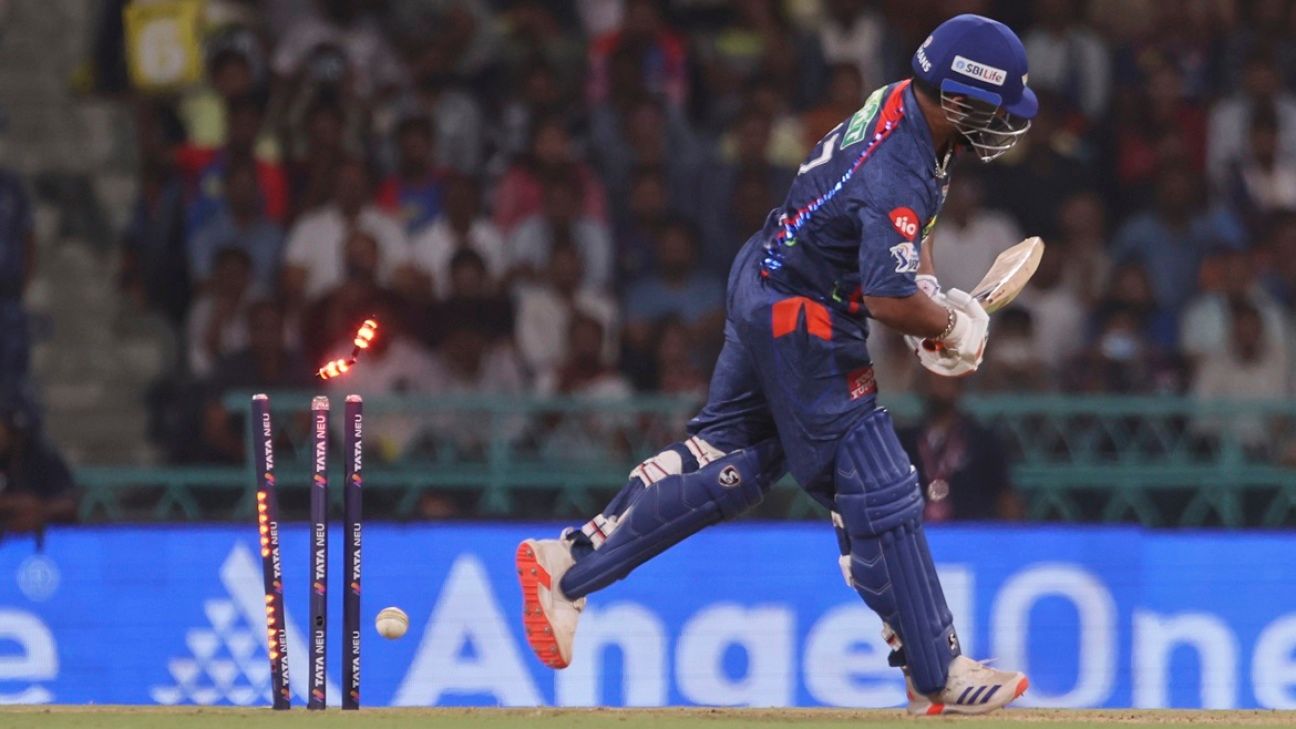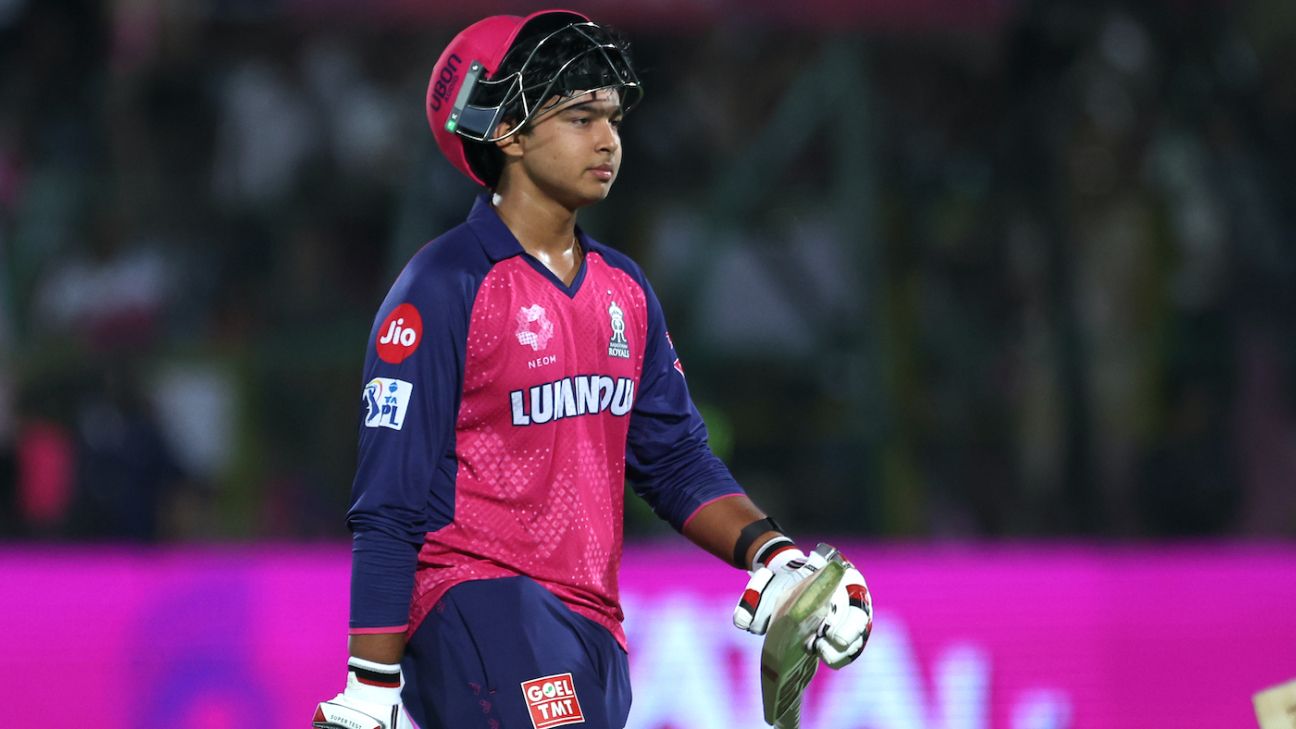Cliff Notes – CEO: Give BCCI Hundred stake to unlock Indian players
- Lancashire’s CEO, Daniel Gidney, suggests that the ECB should offer the BCCI a minority stake in the Hundred to attract Indian men’s players, as current policies restrict their participation in leagues outside the IPL.
- Gidney believes that building strong relationships with the BCCI and aligning interests could facilitate a change in policy, making it easier to secure No-Objection Certificates for Indian players.
Lancashire CEO: Give BCCI Hundred stake to unlock Indian players
Matt Roller
Lancashire’s chief executive believes that the ECB should offer the BCCI a minority stake in the Hundred if it wants to attract Indian men’s players to the tournament. Active Indian men’s players are not granted No-Objection Certificates (NOCs) to play leagues outside of the IPL, and Daniel Gidney believes that “aligning interests” is the only way to prompt a change of policy.
Gidney travelled to India last week to meet with the RPSG Group, who are finalising a deal which will see them acquire a 70% stake in Manchester Originals and run the franchise as a joint-venture with Lancashire. The ECB’s extended deadline for incoming investors to sign participation agreements is the end of April, with documents in the final stages of legal drafting.
Several Indian women have played in the Hundred, including Smriti Mandhana and Harmanpreet Kaur, but no men. Richard Gould, the ECB’s chief executive, said that attracting Indian men’s players was “not priced into our plans” and that the BCCI’s stance is “very clear”, but Gidney believes an ownership interest in the Hundred could change their minds.
“I think it’s possible,” Gidney told ESPNcricinfo. “If I was the ECB, I’d be talking about perhaps bringing the BCCI in as a minority ownership partner in the tournament as a whole. If you do that, then you are aligning interests. That is probably your best chance of getting [Indian men’s] players in the Hundred. It comes down to the will, and the individuals on both sides.
“The BCCI have been really successful with protecting their brand and by making sure they don’t plan any T20 tournaments anywhere in the world… If I was the BCCI, then I would have to say I would need a significant incentive to relax the current policy because that has been extraordinarily successful and has grown the IPL into the massive commercial entity that it is.”
Gidney believes that Lancashire – and, by extension, the Originals – are better placed than most teams to attract Indian players. “We’ve probably had more Indian overseas players than any other county,” he said. “When you have VVS Laxman at the NCA, who [Lancashire director of cricket] Mark Chilton captained, then you have strong relationships all the way through.
“It’s all about relationships between stakeholders… If you build a relationship with the BCCI and understand the types of players that they see as potential future Test players, that’s a lot easier than putting in an NOC request saying ‘We’d like to see Virat Kohli or Rishabh Pant playing in the County Championship.'”
More immediately, Gidney believes that English teams will play exhibition fixtures against IPL franchises. “That’s the first step,” he said. “Imagine having an LSG vs Delhi Capitals game here at Emirates Old Trafford – at the end of the season, say in September. That could be pretty mega, in terms of the Indian fans in the UK. It would make commercial sense for everybody.”
The Originals have already used their link with the Super Giants to sign Noor Ahmad (as their top draft pick) and Heinrich Klaasen (as a direct signing) for the Hundred in 2025, with both players representing the RPSG Group in the SA20. Gidney predicts that IPL players representing the same franchise worldwide will become increasingly common.
“When an overseas player gets bought at auction in the IPL, and that’s locked in for three years via retentions, then it just makes commercial sense for that player to then potentially play for Durban, for Manchester, and also potentially for Lancashire in the Blast … It’s a lot more efficient, and it could become a lot more straightforward.”
Gidney attended LSG’s home game against Chennai Super Kings while in India, and believes that the ECB can learn from the IPL when it comes to event presentation. “At their opening home game, they had a concert. There’s far more you can do with pyrotechnics and lights shows, and the way they use flags and replica shirts is very different to UK cricket.
“But having eight investor-owned teams will encourage innovation. The ECB have done a really good job of creating this acquisition product, but they’ve had to do things in a pretty vanilla way for eight teams. They currently have eight identical DJ booths, which are all quite big: it kills about 3000 seats in the stadium here. It could now take up about one-third of that.”
Lancashire’s decision to retain a 30% stake in the Originals, rather than the 51% that several other host counties have kept, will enable them to pay down bank debt and invest in facilities but has prompted questions about their level of control over the franchise. Gidney insists that he has no concerns on that front.
“Control means ten different things to ten different people,” he said. “We have a joint-venture operations agreements, so effectively, we are running the team on a 50-50 basis. And then in the shareholders’ agreements, as long as you have above 25% – which we do – you get minority protection, which means that we can have some general reserved matters.
“We’ve done the JV ops agreement, we’ve got a very robust shareholders’ agreement, and we’ve got good reserved matters. But all of these things are for the bottom drawer, because if you need to pull that out, then you’ve got a problem. The key is being able to trust your partner that you are working together… Chemistry is really important, and we’ve got that with RPSG.”

